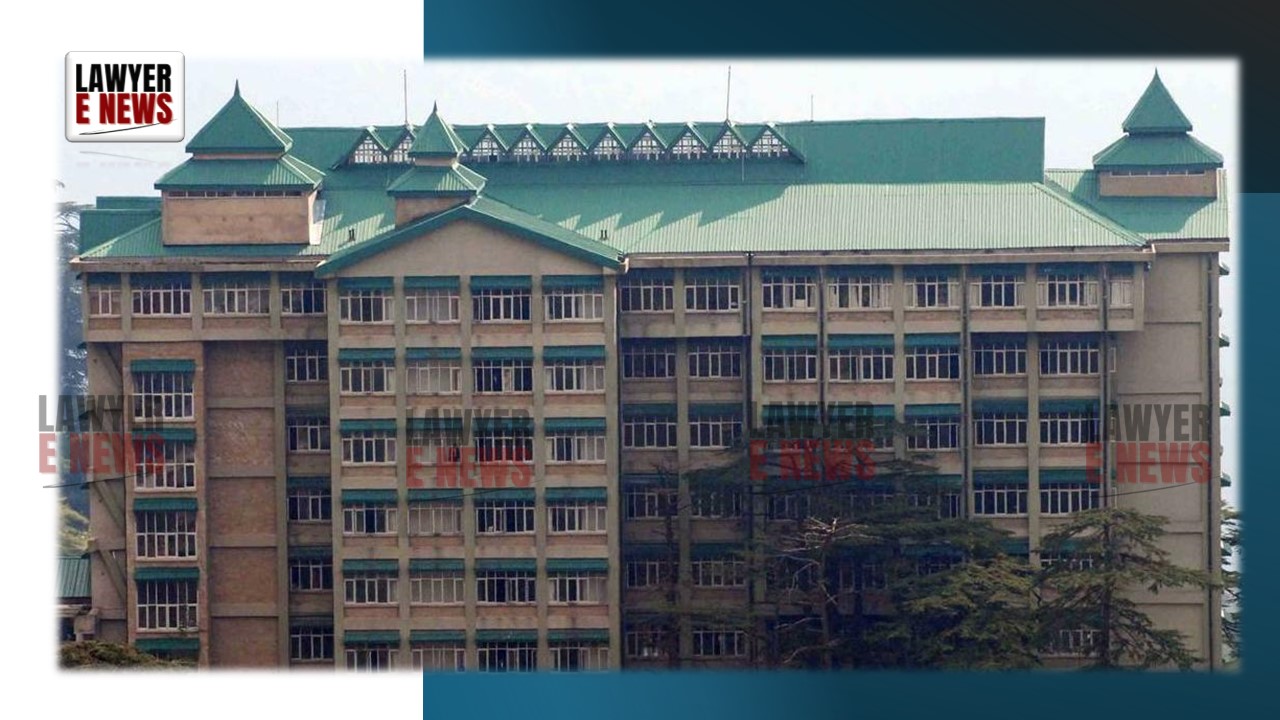-
by Admin
15 February 2026 2:36 AM



In a recent judgment, the Himachal Pradesh High Court upheld a remand order in a long-standing partition suit, emphasizing the procedural fairness required for legal representatives of deceased defendants. The case, involving a land dispute in Hamirpur, had been pending for over two decades. The court ruled that the legal representatives of deceased parties must be given an opportunity to file a written statement and mount a defense. Justice Sandeep Sharma directed the trial court to conclude the proceedings within four months, ensuring all parties are granted a fair hearing.
The dispute centers around land measuring 787.1 square meters in Up Mohal Gandhi Nagar, Tehsil and District Hamirpur. The plaintiffs, Leela Devi and others, sought possession through partition of this land, which had been subjected to previous legal wrangling. Initially partitioned by the Assistant Collector, the land was declared joint and unpartitioned by the civil court after challenges from the defendants, including allegations of inequitable division. Over the years, multiple co-sharers passed away, leading to the involvement of their legal heirs.
The plaintiffs' claim was initially upheld by the trial court, but the defendants successfully appealed the decision, leading to a remand by the District Judge. The primary issue raised was the failure to allow the newly impleaded legal representatives of deceased defendants to file written statements, which the appellate court deemed a violation of procedural rights.
Right of Legal Representatives to File Written Statements: The court underscored the procedural necessity of allowing legal representatives of deceased parties to present a defense. Justice Sharma emphasized that under Order XXII Rule 4 of the Code of Civil Procedure (CPC), legal representatives have the right to submit written statements, provided that their defense aligns with their character as legal heirs and does not introduce new or inconsistent claims.
"Legal representatives cannot set up a new individual right," the court stated, "but they are entitled to make a defense appropriate to their role as successors in interest to the deceased defendant".
Rejection of Amendment Application: The court also addressed the defendants' attempt to amend their written statement, which had been dismissed by the trial court on the grounds of delay. Justice Sharma pointed out that, while Order VI Rule 17 CPC limits the ability to amend pleadings once the trial has begun, amendments that clarify legal issues should be permitted, particularly when they are essential for determining the core issues in dispute.
The court criticized the trial court for rejecting the amendment solely based on timing, emphasizing that "bonafide, legitimate, and necessary amendments should be allowed, especially where they clarify the real questions in controversy".
In supporting the remand, the High Court made it clear that partition suits involving multiple co-sharers must afford all parties an opportunity to be heard, especially legal heirs who are brought into the litigation after the death of the original parties. The judgment reaffirmed the right of legal representatives to participate fully in the proceedings, including the submission of written statements and raising defenses pertinent to the case.
The court also upheld the dismissal of the preliminary objections by the defendants regarding non-joinder of necessary parties and the maintainability of the suit. It ruled that these issues had been adequately addressed in previous proceedings, and the trial court was correct in proceeding with the partition.
Justice Sharma highlighted the procedural lapses in the initial trial, stating, "The denial of the right to file a written statement to the legal representatives of deceased defendants is a violation of their fundamental right to a fair trial. Every party to a suit, especially in a partition matter, must be given a fair opportunity to present their case."
On the issue of amendments, the court remarked, "The proposed amendments were of a clarificatory nature and were necessary to address the real issues at hand. The trial court’s refusal to entertain these amendments on procedural grounds was not justified".
Conclusion: The Himachal Pradesh High Court's decision underscores the importance of ensuring procedural fairness in partition disputes, particularly when legal representatives of deceased parties are involved. By remanding the case for fresh consideration and directing the trial court to expedite proceedings, the judgment seeks to bring a swift and just resolution to a case that has languished in the courts for over two decades. This ruling sets a significant precedent for similar cases where procedural rights of legal heirs are at stake, emphasizing that courts must prioritize substantive justice over technicalities.
Date of Decision: September 3, 2024.
